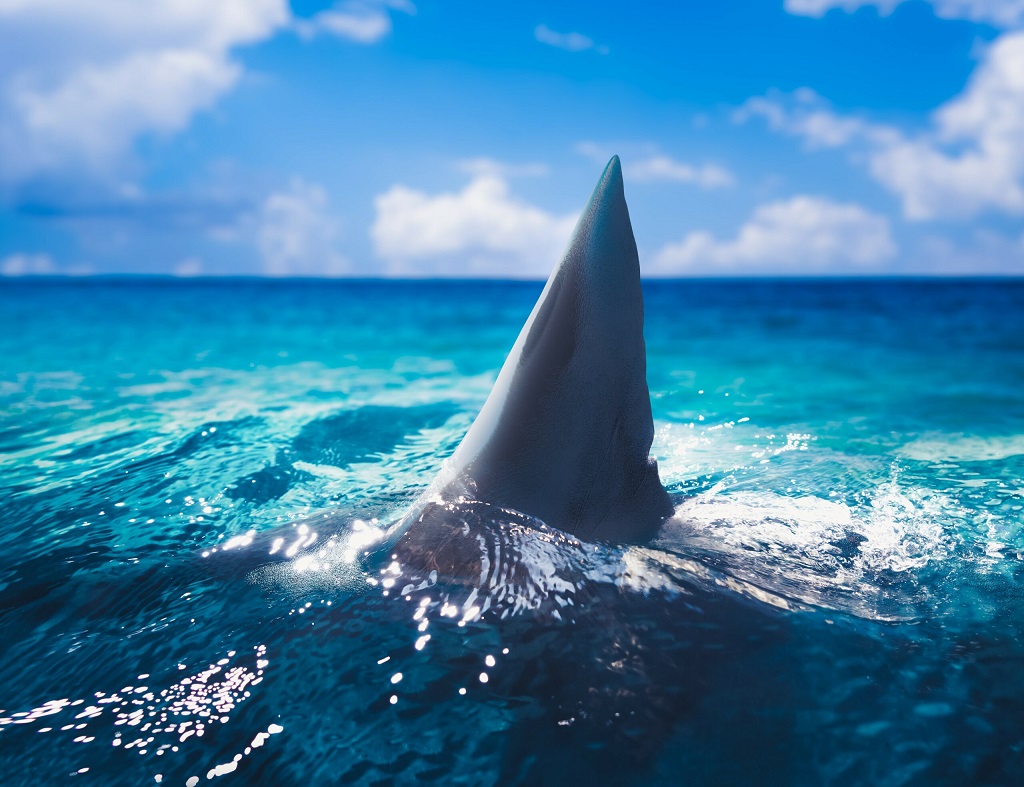
1. Brazil Seizes Record-Breaking Shark Fin Haul: World’s Largest
In June, IBAMA, Brazil’s federal environmental protection agency, announced it seized 28.7 metric tons of shark fins, the largest confiscation of its kind in the world, in an operation targeting illegal fishing. The catch, belonging to two companies that were looking to export the fins illegally, was reportedly destined for the Asian market, where shark fin soup is considered a delicacy.
Both companies were fined and received infraction notices, according to IBAMA, while other entities suspected of illegal fishing related to the catch were investigated. In addition, the confiscation raised the issue of the widespread consumption of shark meat in Brazil itself; most of it is sold under the umbrella name of cação, or dogfish in Portuguese. The country consumes about 45,000 metric tons per year, of which about 20,000 metric tons come from the blue shark, a species listed as near-threatened.
Thank you for your generous gift that will help us continue the production of this weekly, free publication
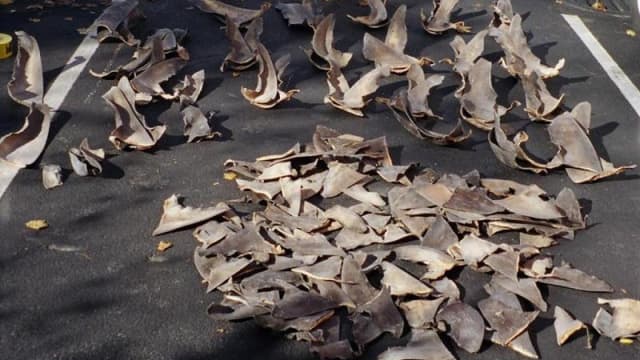
2. New York’s Dark Trade: Illegal Shark Fins Destined for Eateries Intercepted
A new documentary puts a spotlight on illegal shark fin smuggling operations that run from Central and South America to the tables of Brooklyn restaurants. “It’s a state secret,” tells one Ecuadorian smuggler, whose voice and likeness are obscured for safety reasons. “I don’t know what state it’s going to, but I know it’s going to the United States.” Entitled, “Tracking One Of The World’s Bloodiest Trades: The Shark Fin Hunters,” the Fault Lines Documentary series is produced by Al Jazeera.
The documentary goes to Ecuador, where shark fins are exported not only to Asian markets but also to the United States. One smuggler describes how the fins are hidden under large swordfish and brought into the country that way. In New York, a Chinese restaurant in Brooklyn can charge up to $700 per person for shark fin soup.

3. Silky Shark Displays ‘Incredible’ Regeneration With Regrown Fin After Traumatic Injury
Jupiter, Flordia, USA, Researchers discovered that a superhealing shark regrew a portion of its fin after suffering a traumatic injury at the hands of humans near Jupiter, Florida. This is the first-ever instance of amazing regeneration observed in silky sharks, opening up a lot of questions about their healing abilities. Researchers attached a satellite tag to the dorsal fin of a silky shark (Carcharhinus falciformis) so they could track its travels in June 2022.
A few weeks later, an unknown person removed the tag, leaving the shark with a fatal wound. When local diver John Moore saw that the shark’s tag was missing, he informed the researchers. The injuries in 2022 were precise incisions that traced the outline of the satellite tag; a possible interpretation is that the tag was purposefully removed with a sharp tool.
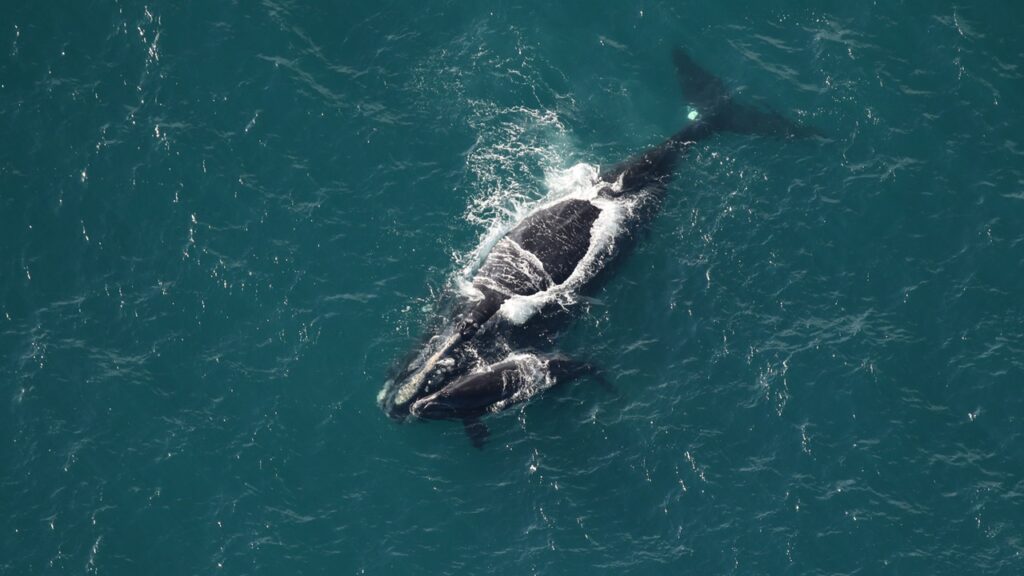
4. A Promising Sign: 2023-24’s Inaugural North Atlantic Right Whale Calf Seen Off SC
Researchers from Florida’s Clearwater Marine Aquarium Research Institute discovered the pair, a mother and a calf, six miles east of Beaufort during a daily monitoring flight. They identified the mother as Juno, who is estimated to be 38 years old. Calf sightings offer hope for experts working to restore the population, which still struggles to rebound after being nearly wiped out by commercial whalers in the late 19th century. The right whale’s name reflects why the species is endangered.
They were considered the “right” whales to hunt because they floated after they were killed. There are an estimated 360 North Atlantic right whales remaining. As per NOAA “Every single female North Atlantic right whale and calf are vital to this species’ recovery”. Calving season is an especially vulnerable period for right whales. NOAA Fisheries has established seasonal management areas to protect young whales.
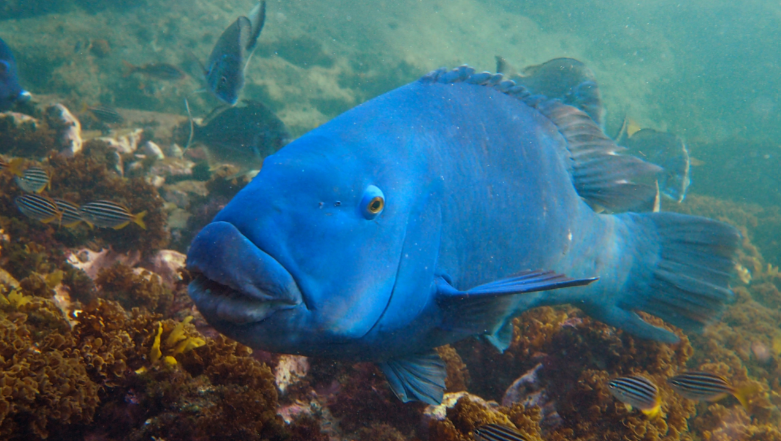
5. Community Fury: Illegal Spearfishing of Cherished Local Grouper Sparks Outrage
Sydney Australia, The blue groper known affectionately by the local community as ‘Gus’, estimated to be about 40 years old was allegedly killed at Oak Park Beach, Cronulla. This unsettling incident in Sydney’s southwest sparked a fervent dialogue about the protection of marine life and the need for more stringent enforcement of fishing regulations.
Spearfishing, particularly of blue, brown, and red gropers, is strictly prohibited in New South Wales (NSW). The penalties for such illegal activities can range from a fine of $500 to $22,000, or up to six months’ imprisonment. The blue groper serves as a symbol of the region’s rich marine biodiversity. This incident underscores the need for greater community education and stronger laws to protect marine treasures like the blue groper.
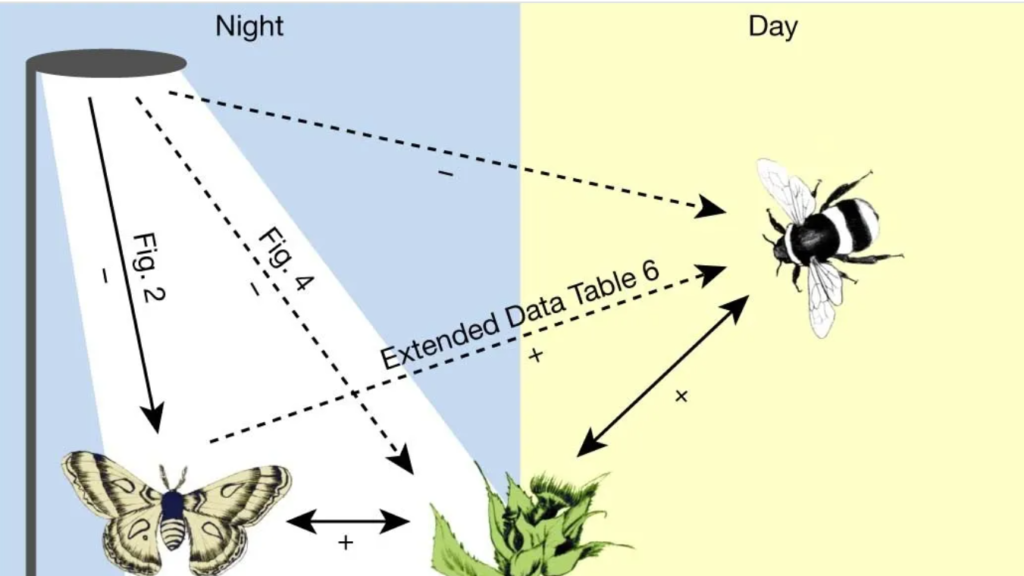
6. Bright Danger: How Light Pollution Threatens Land and Sea Ecosystems Globally
Artificial light at night is being recognized as a significant environmental concern. The excessive use of artificial lighting has led to a phenomenon known as light pollution, which poses a significant threat not only to the environment but also to human health and the delicate balance of ecosystems.
It affects wildlife by altering animal nutrition, behaviors, foraging areas, and breeding cycles, threatening their survival. From the tiniest plankton to the largest whales, from terrestrial to marine ecosystems, artificial light disrupts the natural rhythms and behaviors of fauna.
This pollution has been linked to various health issues in humans: sleep disorders, depression, obesity, and cardiovascular disease. It also has a significant economic impact resulting in financial losses due to wasted energy and increased carbon. emissions. It’s time we shine a light on this overlooked form of pollution and take decisive action to protect our planet’s darkness.
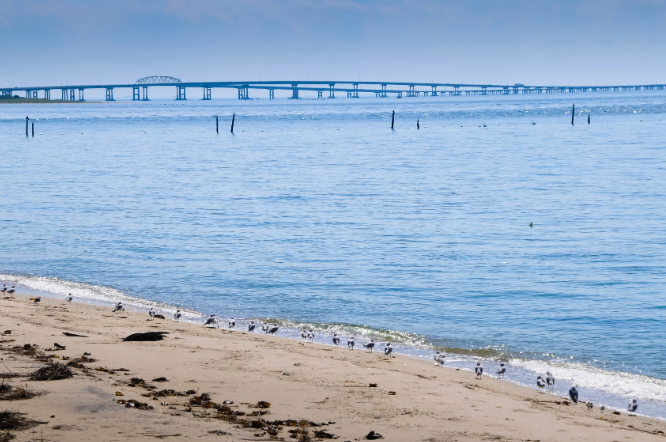
7. Positive Tides: Chesapeake Bay Celebrates a Remarkable Year
Chesapeake Bay, Maryland, USA, After decades of conservation work and multiple pieces of state and federal legislation passed, 2023 proved a banner year for the Chesapeake Bay in Maryland.
For years, conservationists have expressed concern over the amount of agricultural nutrient pollution – namely nitrogen and phosphorus – entering the bay and disrupting its ecosystem. This year’s data showed that the bay had the “lowest average hypoxic volume since monitoring began 39 years ago,” according to a statement released by the Maryland DNR.
Tens of billions of federal and state dollars have been spent on bay conservation efforts, including reducing hypoxia – dangerously low oxygen levels that inhibit marine life. This year’s low hypoxic volume happened despite imperfect conditions. Freshwater inflows (which carry runoff) to the bay were close to historical lows, but air temperatures were among historical highs, contributing to lower oxygen levels in the water.
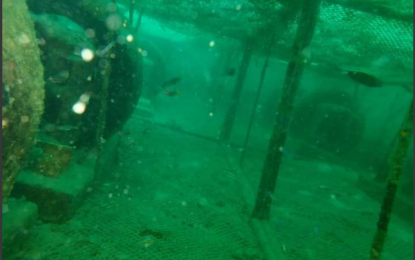
8. Philippines Breeds Two Rare Lobster Species in Reserve
Bacolod City, Philippines, Two rare varieties of lobsters are being bred in underwater cages at the Sagay Marine Reserve, the country’s largest marine protected area, to boost the lobster population.
These are the Tiger Lobster, considered the most premium and with the highest quality breed, and the Bamboo Lobster. The project, spearheaded by the Sagay City Environment and Natural Resources Office (SCENRO) in Negros Occidental, places lobster breeders in an open-type cage system submerged at sea. They are also observing the survival rate of released lobster eggs.
In a separate statement, Second District Rep. Alfredo Marañon III, chairperson of the House Committee on Aquaculture and Fisheries Resources, and a former mayor of Sagay City, said the project supports their vision of sustainable fisheries and marine conservation and is seen to serve as a model for other coastal communities in promoting responsible aquaculture practices.
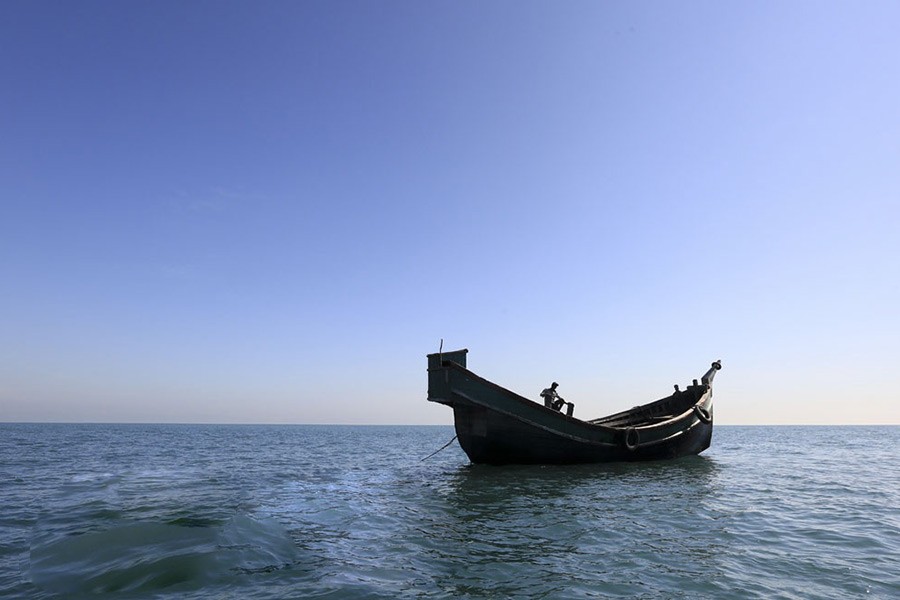
9. “India’s Blue Economy Drive: Harnessing the Bay of Bengal’s Rich Marine Potential
The world’s oceans, vital for resources, are crucial for nations like India, with the Bay of Bengal being a significant area. These oceans provide food, minerals, and oxygen, absorb greenhouse gases, and influence climate and weather patterns. They also serve as cost-effective maritime trade routes. The United Nations recognizes over 3 billion people depend on oceans for livelihoods, with the ocean-based economy valued at 3-6 trillion USD annually. To harness this potential, governments, including India, are focusing on the ‘blue economy’.
This approach aims to balance economic growth with sustainable marine resource management. The Bay of Bengal, bordered by India, Bangladesh, Myanmar, and Sri Lanka, presents unique opportunities and challenges. Effective governance and sustainable exploitation of marine resources are crucial for regional development. India’s engagement in marine scientific research, technology development, and sustainable fisheries will be key in optimizing the blue economy’s benefits for the region.
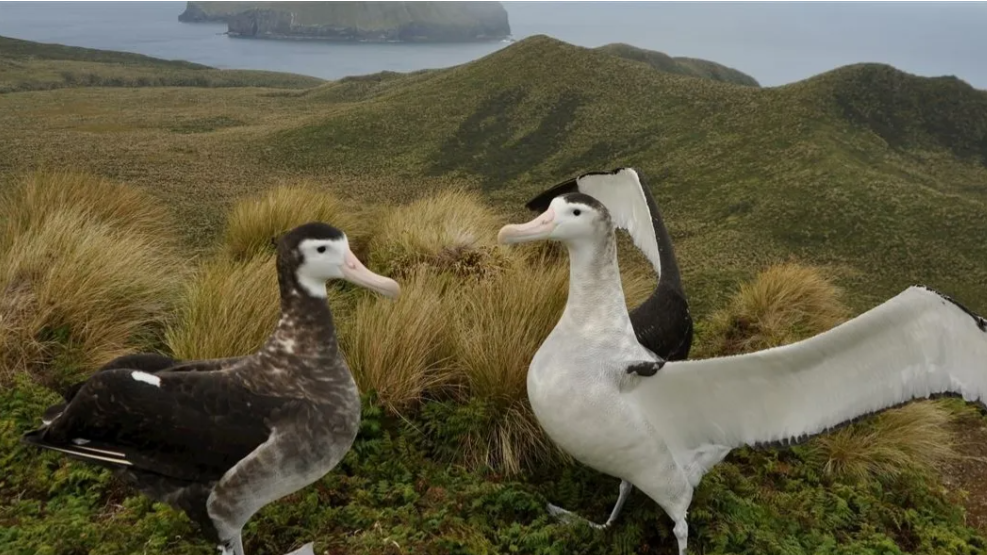
10. Scientists Dive Into Stormy Seas to Save Albatrosses on Remote Island
New Zealand, The world’s largest seabird, Gibson’s wandering albatross, is facing a sharp decline in their population, with numbers plummeting by 50% in the last fifteen years. Two New Zealand scientists, Graeme Elliott and Kath Walker, are on a mission to understand why. On Adams Island, a remote location roughly 500 kilometers south of New Zealand, they are looking for the cause behind this alarming trend.
They often get trapped by hooks baited with squid on fishing vessels. Also, climate change and the warming of the oceans pose an existential threat, affecting the food availability and foraging habits of the albatrosses. As the oceans warm, the availability of food sources like squid may decline, pushing the albatross population closer to the brink of extinction. Models from the Department of Conservation predict the extinction of the Antipodean albatross by 2050.
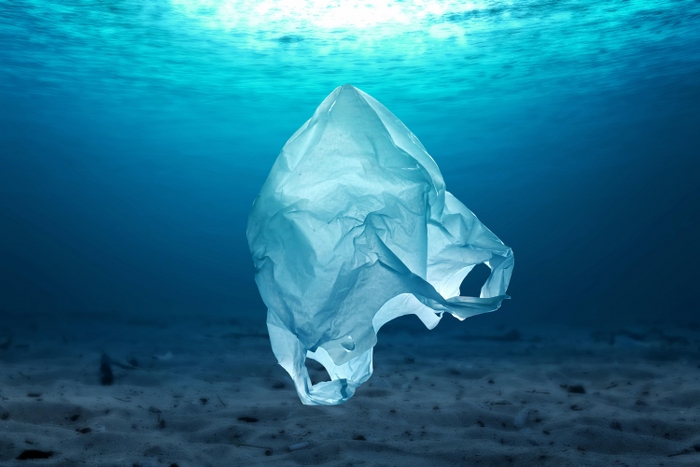
11. Lancaster Township Single-Use Plastic Bag Ban Begins
LANCASTER TOWNSHIP, Pa. USA – Plastic bags have reigned king of carrying groceries and items for generations. Lancaster Township has officially banned single-use plastic bags, the first municipality to do so in Lancaster County. “Maybe the convenience of plastic is going to drive people away from certain stores,” Austin Martinez, assistant general manager at Advance Auto Parts, said.
Those stores that aren’t thrilled with the change claim it makes daily business more complicated. Others believe it was time to switch to paper and reusable bags. There’s been a whole third of a year since it got passed for businesses to get better, more sustainable alternatives,” PennEnvironment’s Faran Savitz said. While plastic provides the most convenience, it’s not too friendly once you throw it away. Environmental experts say plastic bags can take over 1,000 years to decompose in landfills.

12. Cumbria Wildlife Trust Highlights Highs and Lows of the Irish Sea
West Cumbria, England, CUMBRIA Wildlife Trust’s marine team is driving home the importance of respect and conservation of nature, as they recount a year of inspiring success stories and alarming threats to sea wildlife. April saw exciting marine mammal sightings at St Bees, which included grey seals, harbour porpoises, and bottlenose dolphins. The Cumbria Wildlife Trust encourages maritime enthusiasts to consider joining Sea Watch to help record these sightings.
There was a more upsetting sighting at Seascale Beach in March, when a young grey seal was washed up, tangled in fishing gear. Georgia de Jong Cleyndert, North West Wildlife Trusts, said: “This gear continues to needlessly catch and kill marine life, such as seals. In what Georgia calls ‘one step in the right direction’, Allonby Bay was confirmed one of the UK’s three Highly Protected Marine Areas in March 2023.
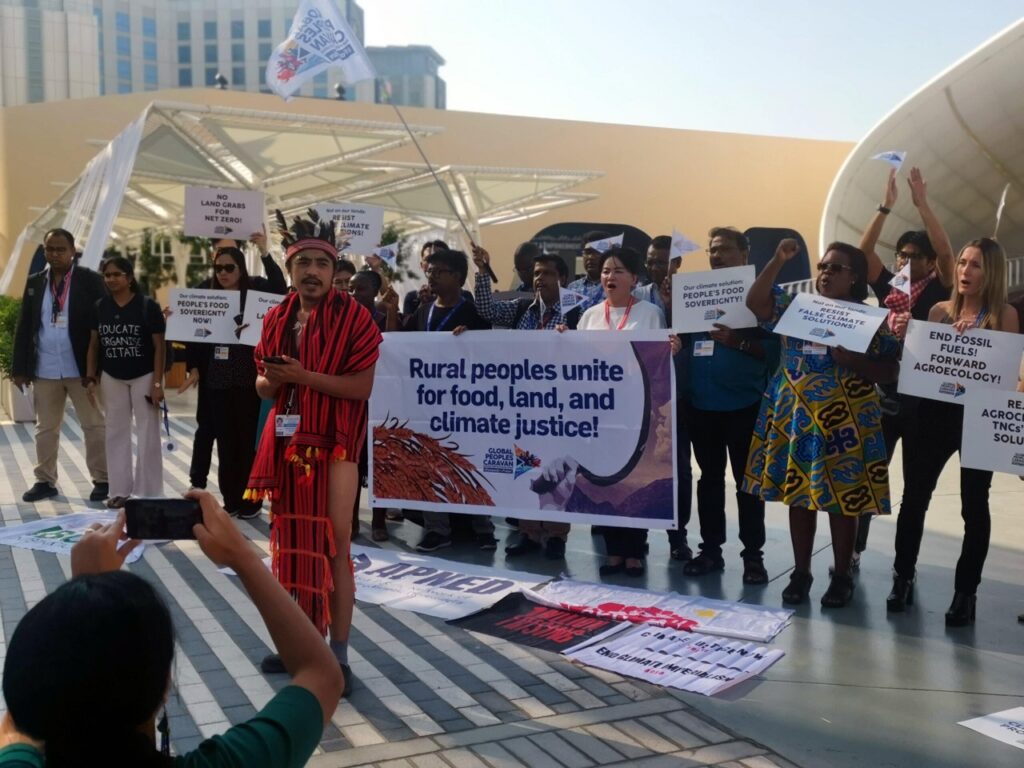
13. Sidelined During COP28, Advocates Still Push for Climate Action
Dubai, United Arab Emirates (UAE) – At the entrance of the Expo City where the 28th Conference of the Parties (COP) was held were climate activists and members of the civil society organizations (CSOs) calling for the phaseout of fossil fuel and demanding immediate climate action.
They described this space as restrictive as the secretariat of the United Nations Framework Convention on Climate Change (UNFCCC) set guidelines on how to conduct their protests such as requiring permission for protests.
But even with the restrictions, groups managed to express their dissent and discontent at COP28, especially since it was held in the UAE where the designated president, Sultan Al Jaber, is the head of the country’s national oil company. Protests are also prohibited in the UAE but at COP 28, protests were permitted only within the confines of the conference venue.
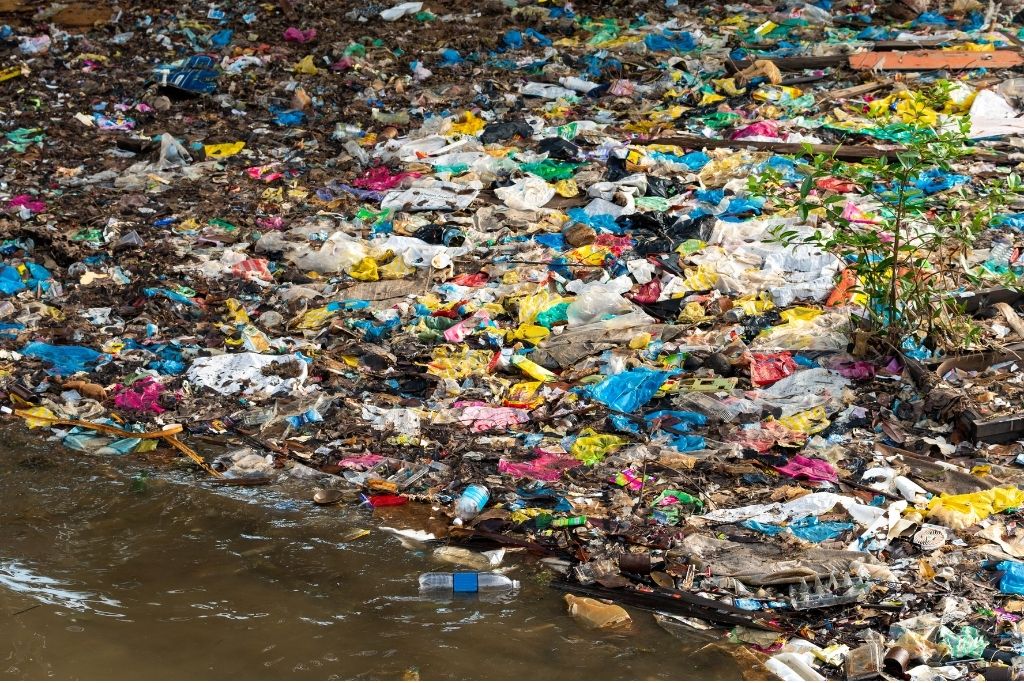
14. 21 Complaints in 10 Months; Pop Goes the Plastic Ban
Bangalore, India, Banned items are available and disposed of freely, pointing to low awareness and implementation. Experts say the number of complaints against banned single-use plastic (SUP) has more or less remained the same, indicating that the initiative has run out of steam in the city. They also highlight that despite BBMP’s best efforts; banned SUPs are still being sold and used rampantly across the city.
Click the link to read “the rest of the story”.

15. Norway’s PM Pledges Economic Recovery in New Year Speech
Oslo, Norway, The Norwegian government will do its best to create more job opportunities and increase the pace of climate action, Prime Minister Jonas Gahr Store said in his New Year Speech on Monday. In the nationally broadcast speech, Store reflected on the challenges of the past year, noting that global conflicts, economic instability, pandemic aftermath, and rising prices strained both national and household budgets.
Store also addressed the younger generation’s concerns regarding climate change, biodiversity loss, oceanic plastic pollution, and urban air quality. He committed to more significant actions in these areas, emphasizing that climate action must now surpass the pace of climate change. He highlighted some ongoing green initiatives, including the replacement of old ferries and buses with electric ones, as well as the energy-saving measures adopted by Norwegian households.
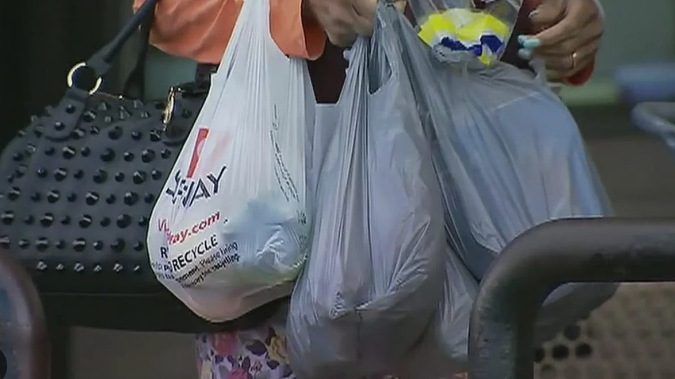
16. New Plastic Bag Fee Heading to Prince George’s County, Maryland, USA
Prince George’s County retailers will begin charging at least a 10-cent fee for each paper and reusable bag sold to consumers starting January 1, 2024. A new ban was enacted to help protect local waterways and marine life, reduce plastic pollution and litter, and promote reusable bags. This ban includes single-use, carryout plastic bags distributed at check-out registers by retailers and other businesses across the county.
The ban applies to all retail stores, restaurants, grocery stores, or any other establishment providing single-use plastic bags to customers at the point of sale or service. The ban doesn’t apply to bags that package bulk items (produce, grains, small hardware, etc.), bakery goods, fish, meat, flowers, and dry cleaning. No charges apply to paper bags for prescription medicine and take-out food by restaurants or prepared food provided at a drive-through.




